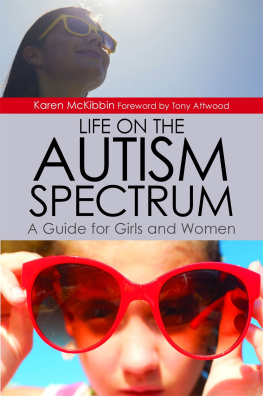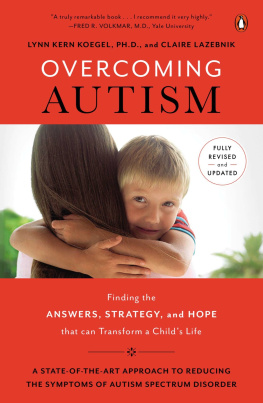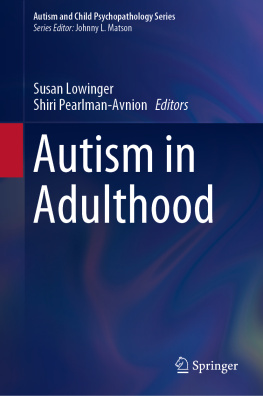Copyright 2019 by Mary Lynn Ackerman Willis & Mikhaela Ackerman. All rights reserved.
All rights reserved. No part of this publication may be reproduced, distributed, or transmitted in any form or by any means, including photocopying, recording, or other electronic or mechanical methods, without the prior written permission of the publisher, except in the case of brief quotations embodied in critical reviews and certain other noncommercial uses permitted by copyright law.
This book is a memoir. It reflects the authors present recollections of experiences over time. Some names and characteristics have been changed to protect privacy, some events have been compressed, and some dialogue has been recreated.
Front cover image and design by Amira Shagaga.
Edge of the Playground, LLC.
First printing edition 2019.
Dedicated in loving memory of Marian James Ackerman, Baba extraordinaire.
For carrying our family.
For her unwavering spirit and grace under pressure, always.
The ability to tie your shoes does not determine your success.
1
Mikhaela
R ecess. In one word: chaotic. Something I do not look forward to. I hear the teacher say it is time for recess. The other children become loud and rambunctious. They quickly flee the classroom to the outdoors. Faster than I can even realize what is happening.
I slowly walk outside to the playground. I am immediately met with a storming sea of bright lights, colors so vibrant I can barely open my eyes, and the loud voices of children at play. I am drowning. I have capsized. Carried out to sea with no escape. I see no faces, the only thing before me is painfully vibrant color with no place to rest my eyes. Like a bright, glaring light turned on too soon after being in complete darkness. Even the faintest light feels as if I am staring directly into the sun. Smells overwhelm me. The sounds are so loud I can distinguish no specific noise or words. Hearing each sound with equal intensity and no ability to filter out background noise. Jolting sounds that do not allow me to process what is being spoken. Constant input.
I need to find refuge. I cannot stay in this place.
I walk until the sounds slowly begin to fade away and the colors and brightness are not as enveloping. I walk and walk until finally I find peace. The place I have found is perfect for me. It is calm, there is not a lot going on. There are even straight lines made out of wood that I can walk and line things up on. I am close to the trees and feel relaxed. I have found my own little sanctuary amidst this sensory onslaught. Here, I am safe.
This place I have found is the edge of the playground.
I see no reason to leave. I am not lonely here. I am content. I am able to enter a meditative state by walking the edge. I do not want other children to approach me. They are too loud. What games could they possibly play more fun than my own imagination? I entertain myself very well. I crave this solitude. Befriending them is too difficult and interpreting social behavior is exhausting.
You are all alone.
I look up. A girl. She has come to the edge of the playground.
Why has she come here? I think.
I do not need her here. I did not even ask her to come over. I am happy where I am. I look her way, and I am confused by this behavior.
Lets be friends! Come with me Ill introduce you to the others and you can play with us.
Once again, I am confused. Why do these others desire my company? Why do they choose to be in this sensory storm day in and day out? I do not need friends; I am happy in my own world and my own space. The rest of the playground is overwhelming.
But deep down I wonder what friendship has to offer. Why people feel such a joy when being together. I find myself considering this invitation. Entering their world comes with a price. I know that. The price is learning a language that will always be foreign to me. Social and nonverbal language I dont easily understanda language I never fully grasp. Theres an eternal guessing game, along with the sensory storm I cannot filter. Being part of their world would not be simple for me. But this girl is inviting me. Maybe I will join. After all, I can always return to this place.
As I tentatively follow her from the edge of the playground into the storm, a single thought runs through my mind. Is it worth it?
2
Mary Lynn
M ikhaelas journey began in the same way it does for all of us, safely tucked in her mothers womb. I felt wonderful during this time. I was invigorated and had no complications through the pregnancy. Mikhaela was definitely a wanted and loved child even before she arrived. It would not be until years later that this glorious time would come into question. As if on cue, and after 33 hours of labor, Mikhaela made her entrance on October 29 th , 1991. Children rarely arrive on their due date. It was to be a sign of the need for predictability that was to follow.
The first ten days were uneventful. In fact, Mikhaelas grandfather remarked that she seemed far away. It was almost as if she wasnt completely in this world. She was unusually quiet. She had a certain distance in her eyes. This observation would also turn out to be prophetic. At about ten days old, Mikhaela burst forth. She was positively inconsolable. Repeated trips to the pediatrician yielded no answers. As the frustration mounted, it was decided by the doctor that I was simply overwhelmed with a first-time baby and that it was nothing more than colic. Feeding had been an issue since birth. She had difficulty latching on, and she tired easily. I would later discover that this low muscle tone and poor coordination were hallmarks of things to come. Mikhaela had difficulty eating and sleeping. She would only sleep in a snuggly pack facing outward. The moment she was laid in her bed, she began to wail. I noticed that if I kept my hand on her back, she would continue sleeping. This was the beginning of gravitational insecurity. I was diligent. Black sheets went up on the windows to block out all light. Mikhaela continued to wake every hour or so until the age of two and a half. Despite the challenges, I remained completely in awe of my new daughter. Through the tears, I have always felt blessed.
The first year of the journey was difficult because everything bothered baby Mikhaela. Light, sound, and touch were the biggest offenders. As a result, the baby remained distant, unable to learn from the environment around her. I tried desperately to engage her, but Mikhaela preferred her solitary world. Inanimate objects fascinated her. One in particular emerged as a favorite, and it was a lamb named Baa. Later, after diagnosis, this comfort would receive a name. It is called stimming. This is the way that autistic people regulate themselves, through movement, sound, or other behaviors. In Mikhaelas case, through twiddling Baas ears. It was soon understood by all who entered Mikhaelas world, that Baa was essential to daily living. During that first part of the journey, although distant and easily overwhelmed, Mikhaela seemed happy in her own home. As long as she had Baa close by, life was good.
3
Mikhaela
S timming is how I remain calm in this overwhelming world. A world that is not made for neurotypes like mine. Everything is fast paced, bright, loud, and intense sensory stimulation. Our society thrives on this kind of environment. I flounder in it.
Have you ever watched something very satisfying to you? Like soap being carved or listening to the sound of rain. Just as these things calm you, stimming calms me. It has the ability to take me into a solitary, meditative world where I can reset and clear my mind. It helps me regulate my emotions.












